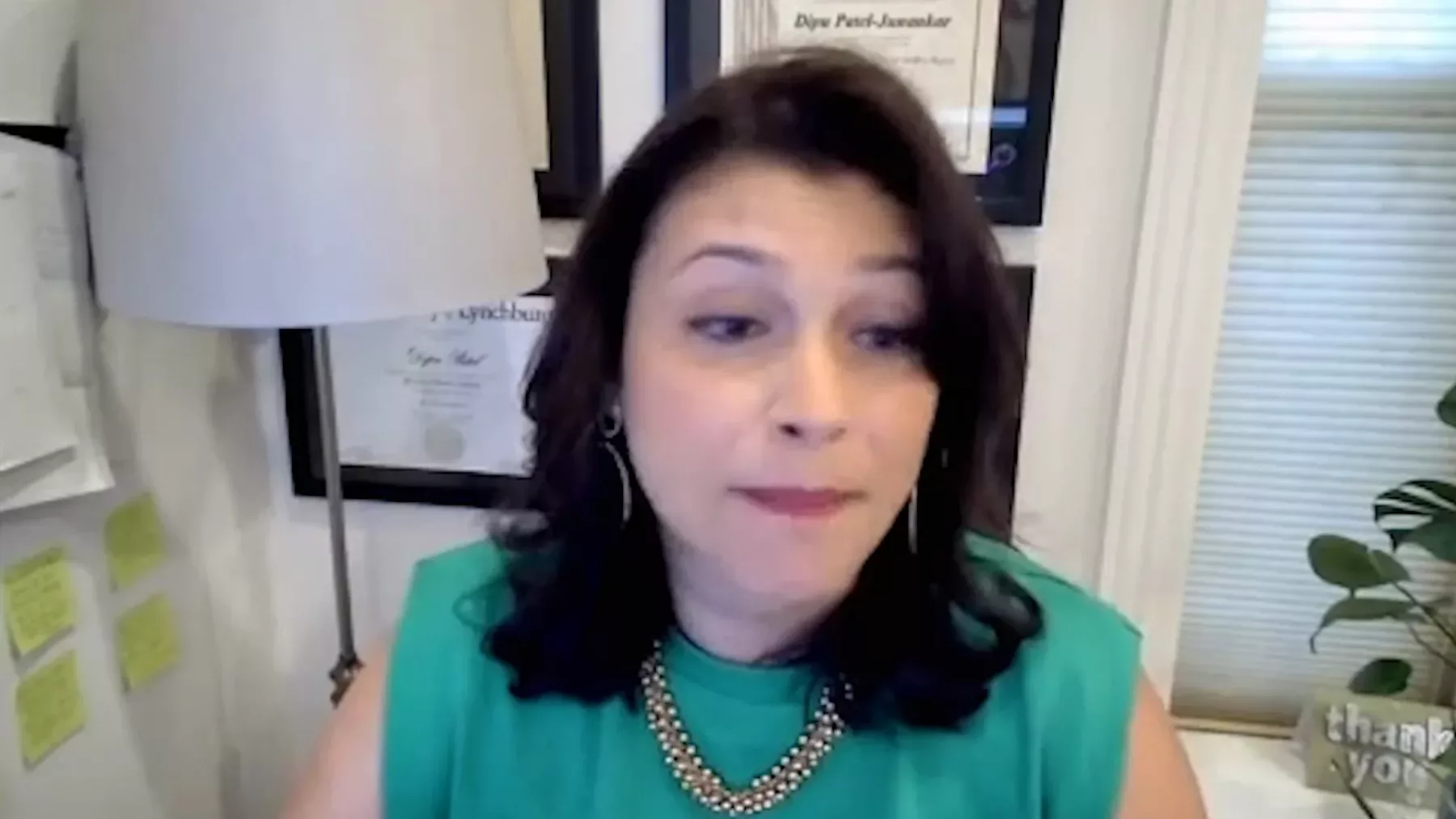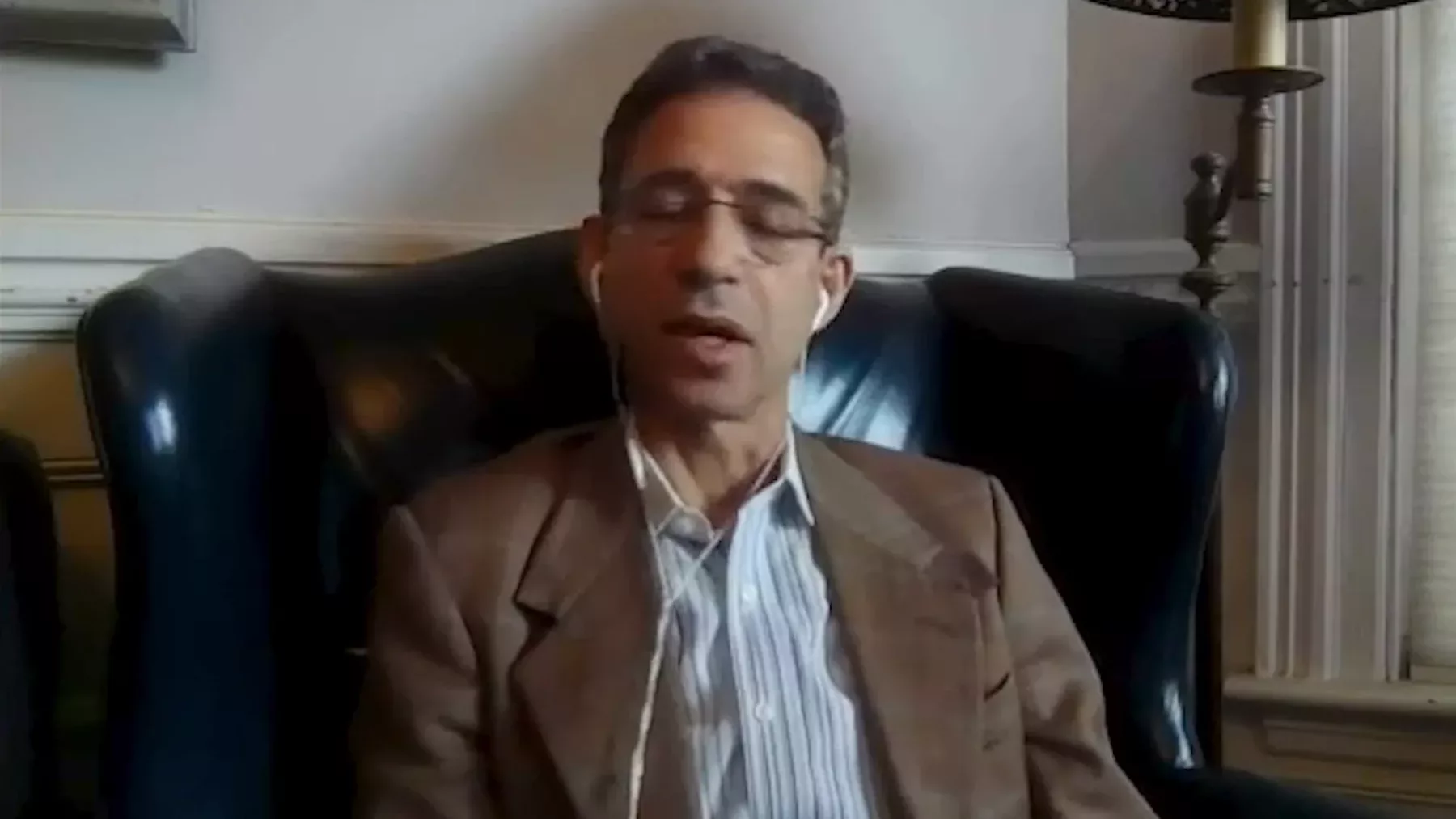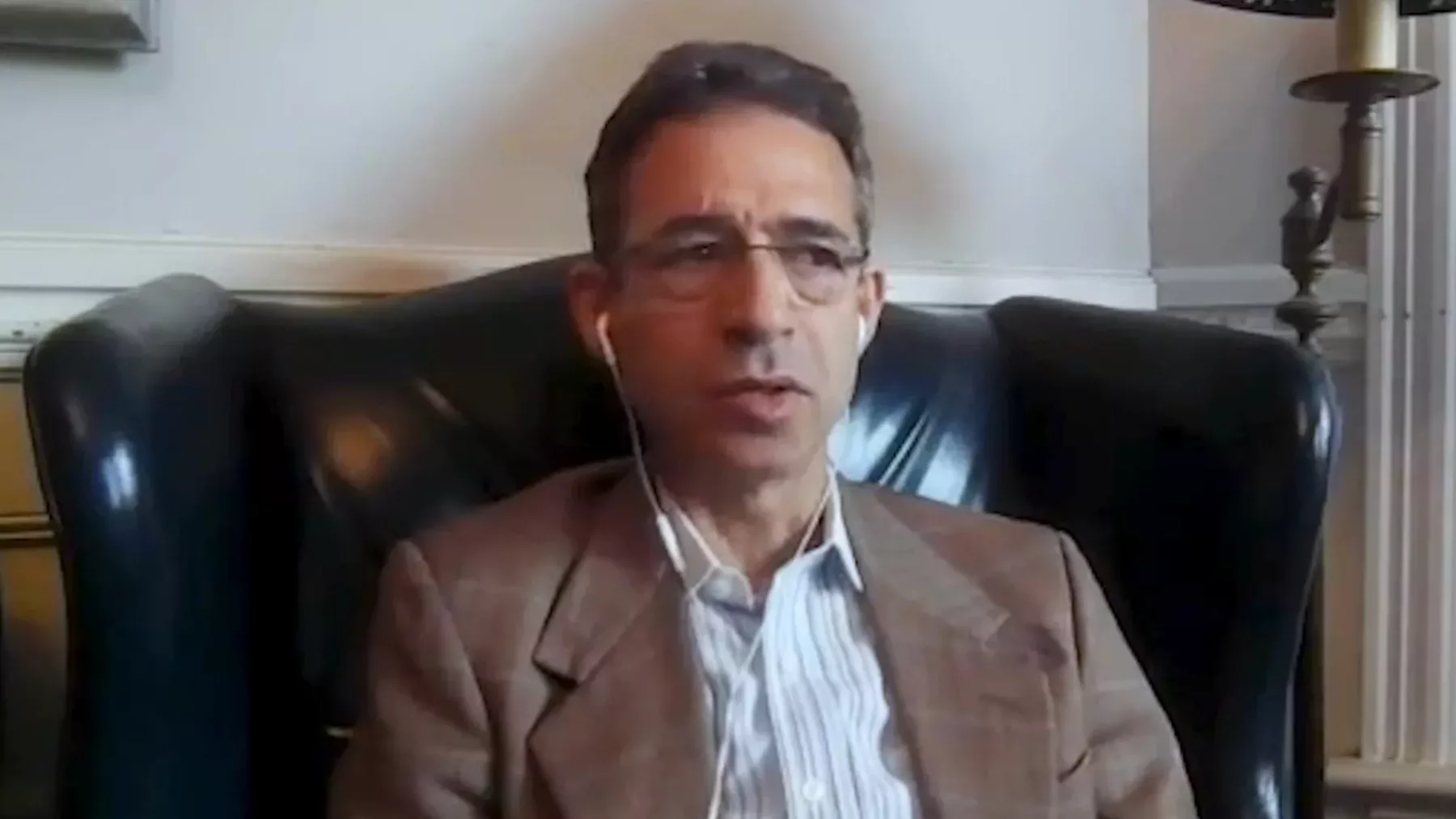How AI and ChatGPT are changing healthcare delivery
We’re ushering in a new era in healthcare — one that puts futuristic technology into providers’ hands today. ChatGPT and artificial intelligence (AI) have gripped the headlines this year, taking many industries by storm. It’s no surprise that the vast majority of healthcare organizations are working on implementing the new technology to enhance their care delivery.
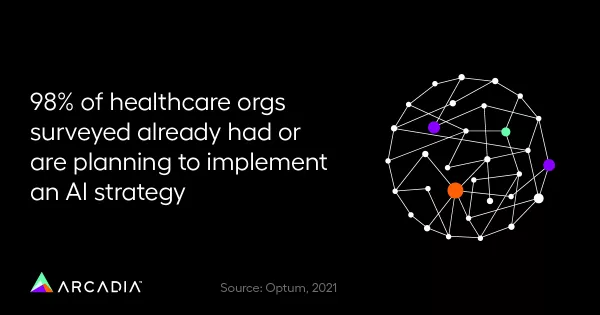
Ben Suster, Strategic Accounts at Arcadia, Dr. Rich Parker, Chief Medical Officer at Arcadia, and Dipu Patel, Vice Chair of Innovation at University of Pittsburgh recently addressed the excitement and fear associated with AI, ChatGPT, and other trends in the webinar, Digital Trends and AI in Healthcare.
“What seemed to be 30 years in the future is here now — the pandemic elevated this issue and brought it to the forefront faster than we were prepared to handle it as is very apparent in the news cycles these days,” said Patel. “We are in a little bit of a reactionary mode with this … there are a lot of pros to it. We just need to figure out how to put the appropriate guardrails around this particular piece of technology.”
Parker and Patel expect AI can reduce workloads and increase diagnoses for conditions like breast cancer by taking patients' histories at hospitals or reading mammograms. They added; however, that we can’t yet rely on ChatGPT to weigh the importance of each piece of information, making providers’ experience and insight critical.
Ethics and bias in using artificial intelligence
Parker describes ChatGPT as many human brains wired together creating a big database and making inferences. Those inferences are based on the data. If the data has biases inherent within it, then the inferences will likely be biased. Providers need to be prepared to handle that.
“An example would be, let's recognize that we have an issue with systemic racism in the United States … There's a lot of information on the World Wide Web that is systemically racist and so if you allow ChatGPT to just do what it's going to do, it may make inferences that come out racist,” he explained.
Patel points out that these tools are built by humans and therefore, mimic biases of the human species. The challenge will be to address and mitigate against these biases as we use the technology to speed up accurate diagnoses.
“This system is going to be biased until we decide as a society that we're going to address this,” she said. “There's a lot of research being done on how to mitigate the biases in algorithms, but I don't think it's ever going to be perfect.”
The possibility ChatGPT can reduce costs
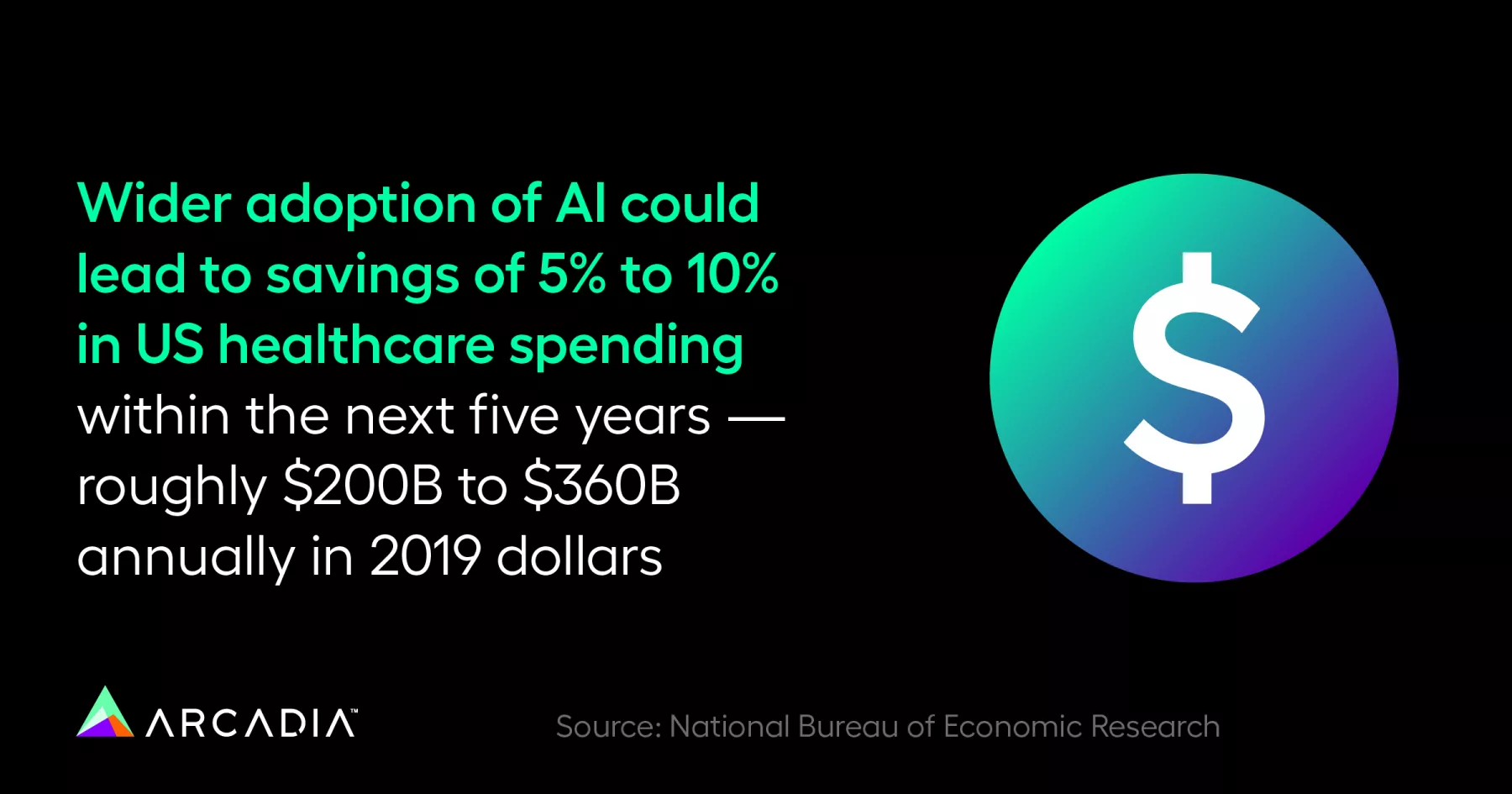
Suster says one of the most often cited benefits of AI in the clinical setting is cost cutting.
“I think of just streamlining processes, workflows, cutting out a lot of low value tasks and work by taking down medical histories,” Suster explained.
While it has the potential to help, Parker doubts ChatGPT will be the silver bullet that will finally bring healthcare costs in the U.S. down significantly.
“All the things that we've done over the last 35 years haven't worked, and the cost of health care keeps going up no matter what so I'm not exactly convinced yet that ChatGPT is going to cut the cost of healthcare or even flatten the curve of the increases,” Parker said.
Advances like electronic prescribing and electronic health records have been great steps forward, but have come with new bureaucratic requirements.
“I'd love to see ChatGPT really taking work off the providers’ plates and not replacing it with some other garbage that is making providers more bummed out than they ever were,” he added.
There’s also the possibility that AI could, in the future, handle documentation, streamline workflows, and make room for better conversations with patients.
“The average clinician spends 10 to 12 hours a week just documenting the patients that they've been seeing. It would be great if you walked into an exam room, and the AI in the room with you and the patient documented that conversation accurately to alleviate that piece of documentation, then you could actually have that conversation with a patient,” said Patel.
Data security and data privacy
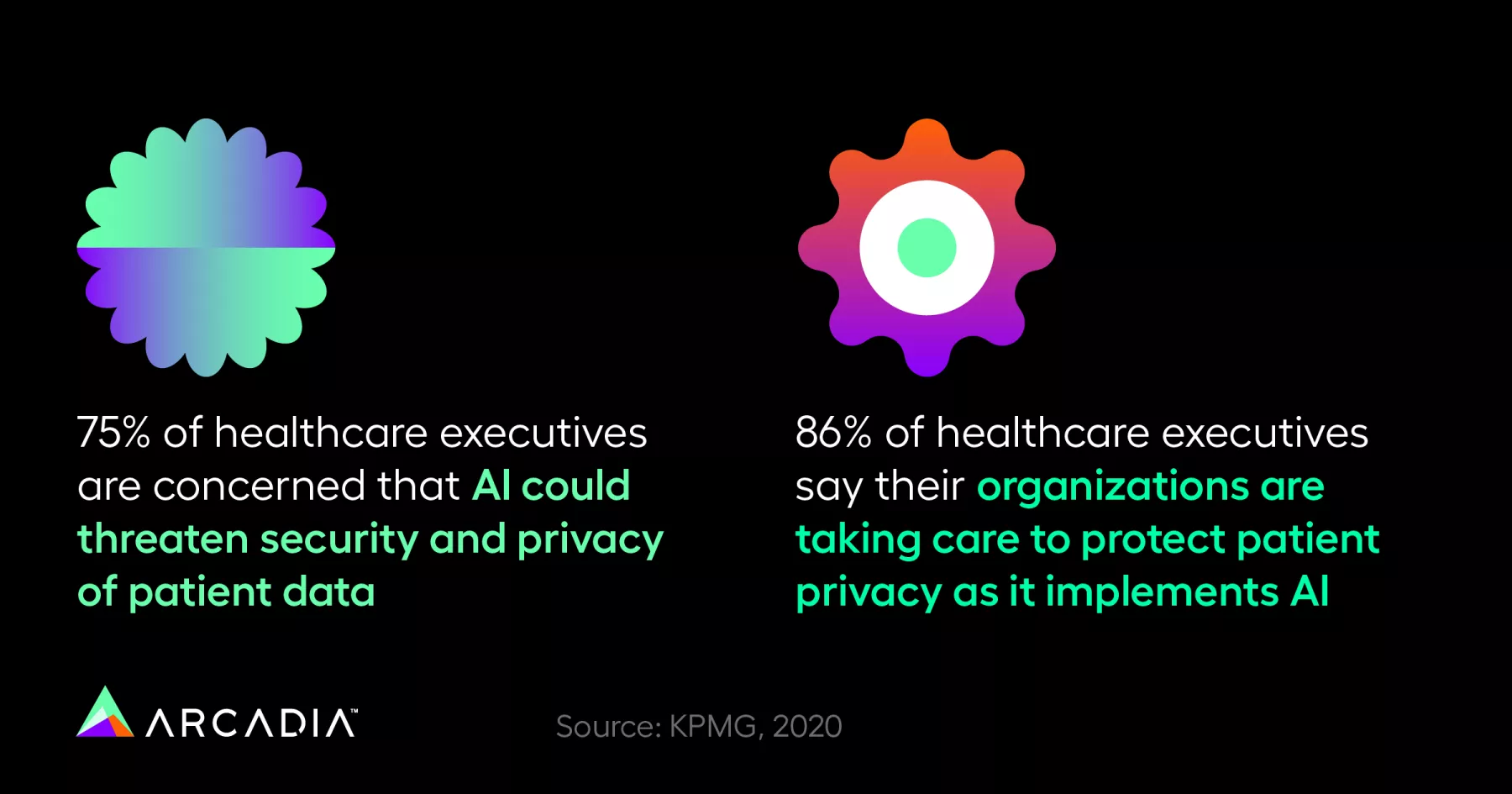
Breaches are too common and can be disastrous for patient privacy. Healthcare organizations must invest in data security measures and the FDA, federal, and state officials need to establish regulatory guidance to protect patient privacy.
“Entities like CHAI, the Coalition for Healthcare AI, are trying to put out some guidelines and blueprints in terms of how to think about this and the Vice President just announced a meeting with tech industry leaders to talk about how to put guardrails around this information,” said Patel. “Unfortunately, I don't have much faith in the tech industry to self-regulate so this is going to have to come from the government.”
Parker added there is a delicate dance between private and public when it comes to regulations.
“I think it's fair to say that the framers of the Constitution did not anticipate ChatGPT, but they didn't anticipate a lot of things and the beauty of our Constitution is that it has to be flexible enough that somehow we figure it out,” said Parker. “I think it'll be a fascinating journey to watch the private/public, state/federal court interactions over time dealing with these social issues around information, because it's not going to be simple.”
Using digital tools for a better patient experience
There’s a fear that AI-driven technology will replace healthcare touchpoints between providers and patients, making the healthcare experience even worse than it is for many today. But Parker and Patel believe that digital tools will be used to enhance the patient-provider relationship.
“Before telehealth was infused in our lives and in healthcare, you would see your healthcare provider once a year for your annual checkup … the thing that has changed is that you have untethered your care from a hospital building and that in and of itself, is a revolutionary way of thinking about how care is being delivered,” said Patel.
She points out that the technology is there for patients to receive more touchpoints with providers at home, on vacation, or anywhere they are and the policies for employing it will follow.
Optimism about the future of healthcare with AI
Many experts are optimistic about the changes AI and digital tools will bring. They understand that these digital tools are here to stay and see potential in research, reading test results quickly and accurately, and many other segments of the sector. To learn more about ways you can work with Arcadia to implement digital tools effectively, explore the Arcadia Analytics data platform.

